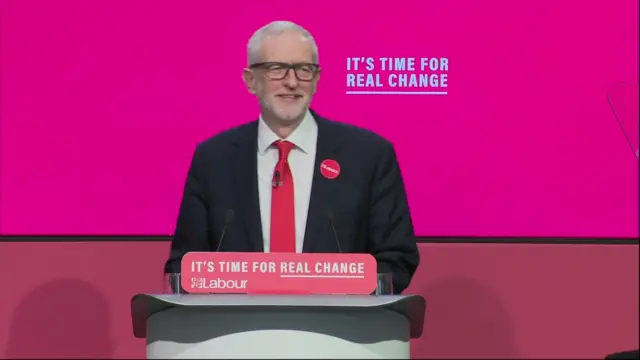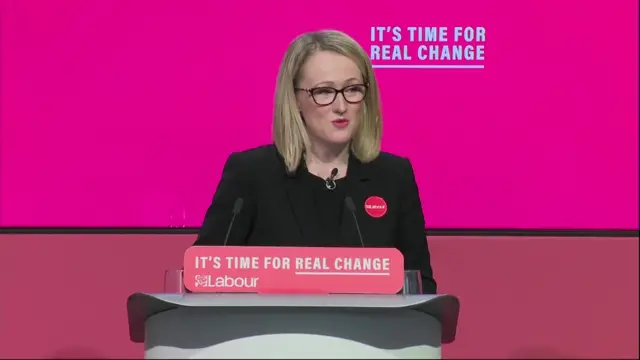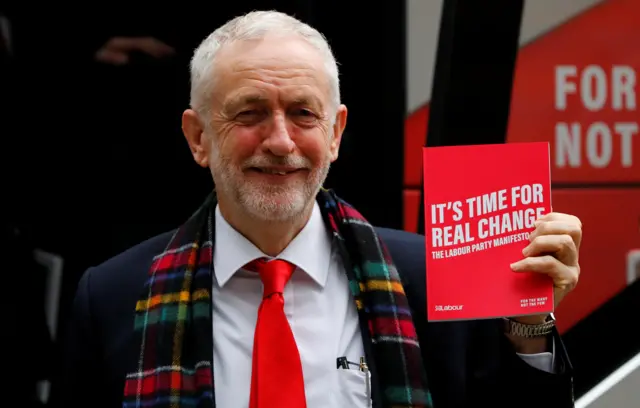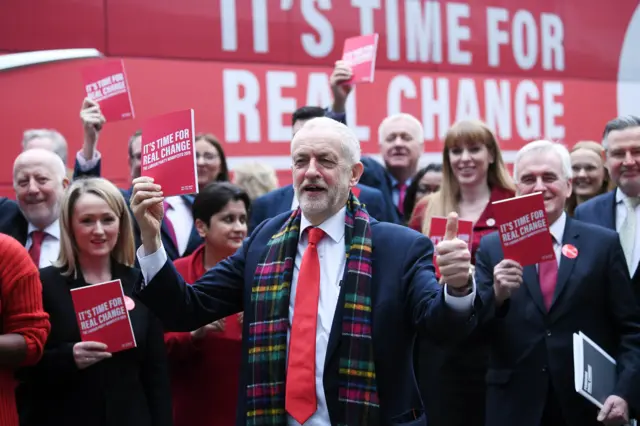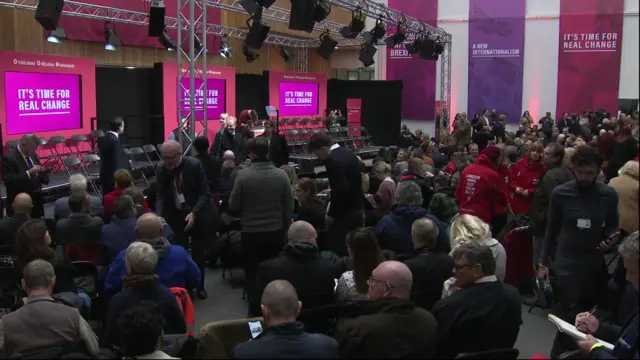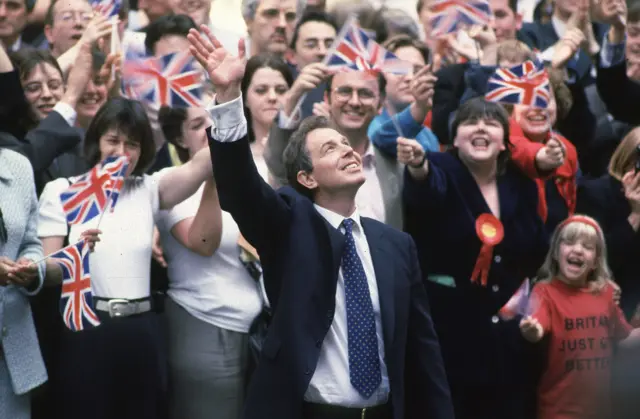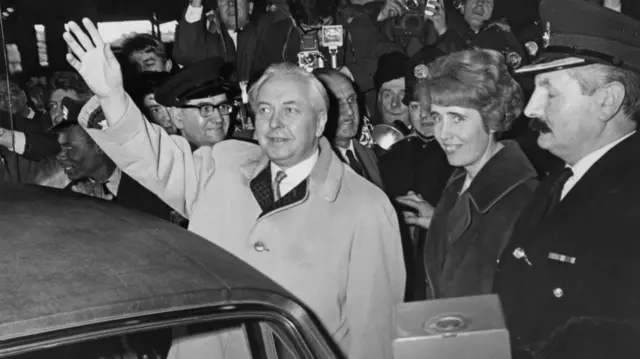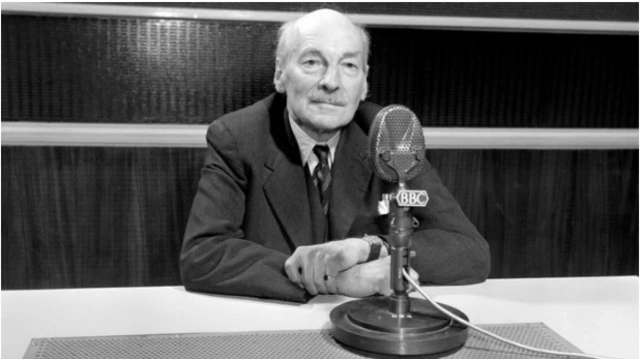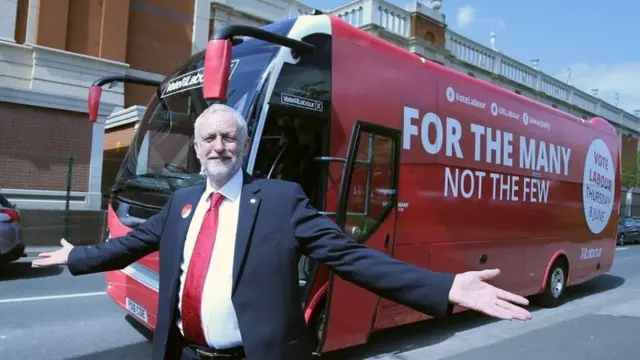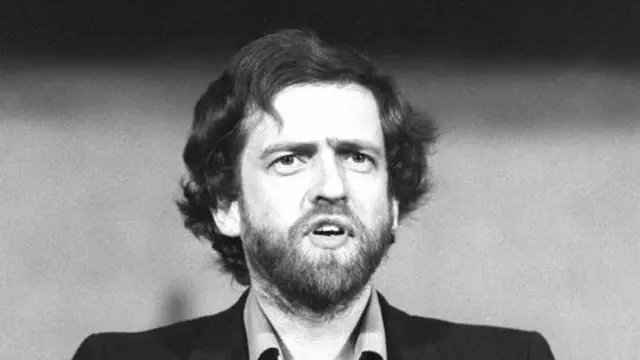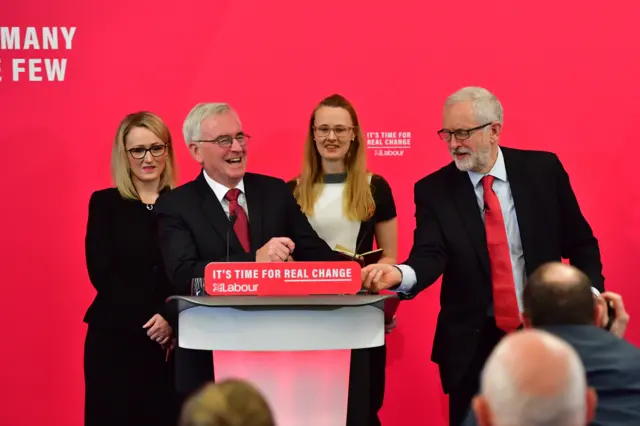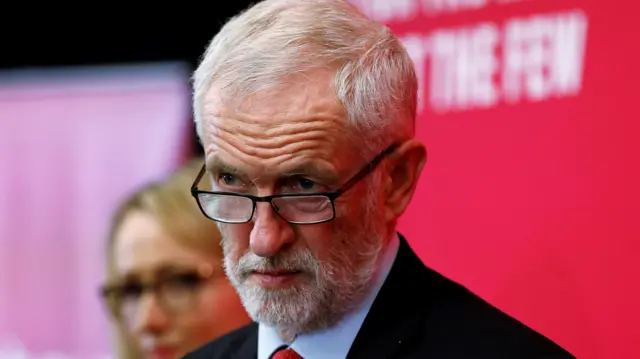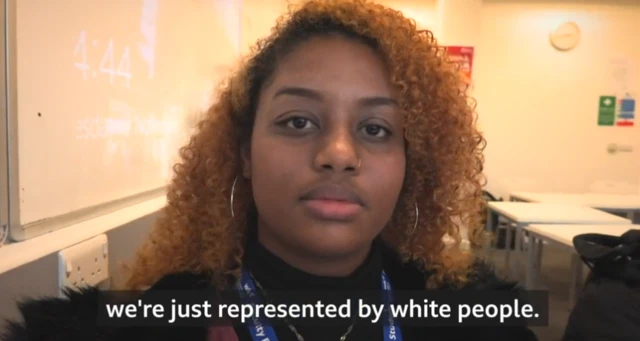Manifesto pledges: Trident WILL be renewedpublished at 11:24 GMT 21 November 2019
We're getting the first glimpse of some of the manifesto pledges.
One which had not been announced earlier, is Labour's pledge that it will support the renewal of the Trident nuclear deterrent.
Mr Corbyn is a longstanding critic of nuclear weapons.
But the manifesto adds: "Labour will also actively lead multilateral efforts under our obligations to the Non-Proliferation Treaty to create a nuclear-free world."

